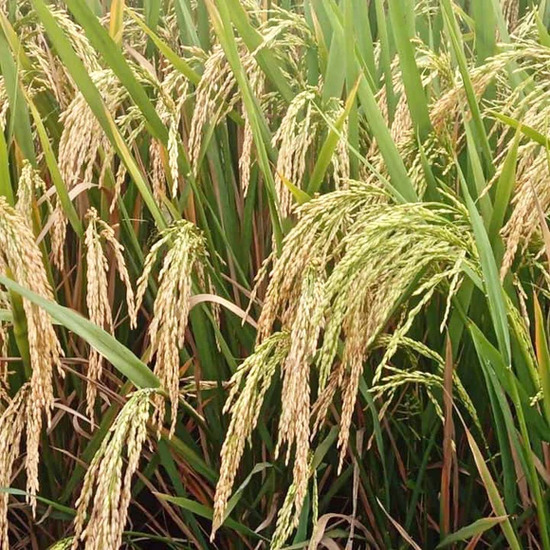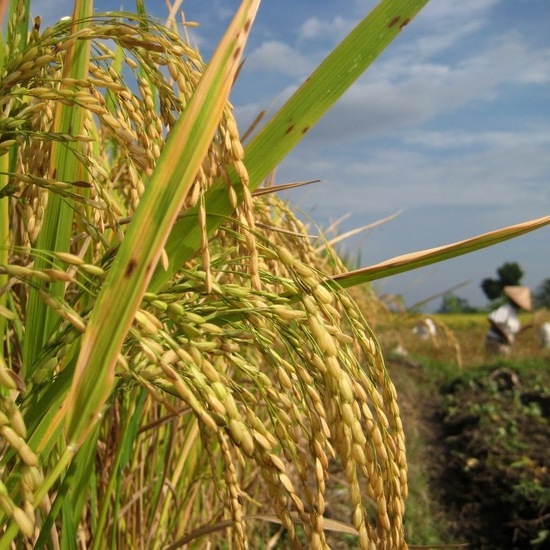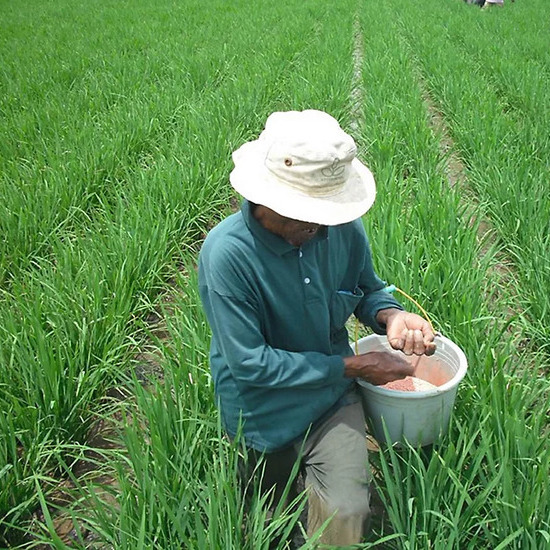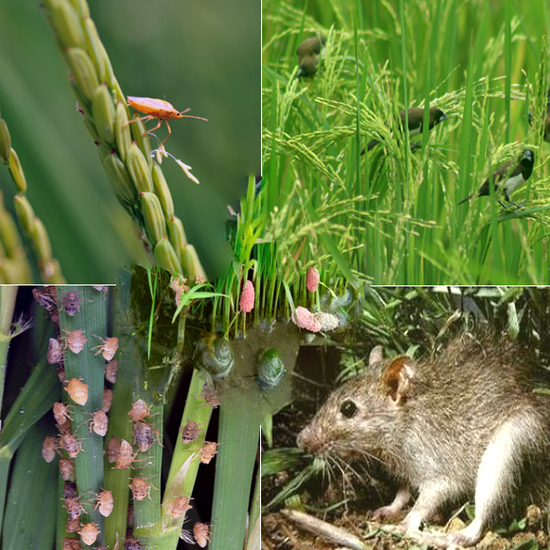Effective Strategies to Overcome Nutritional Deficiencies and Balance Nutrients in Rice Plants
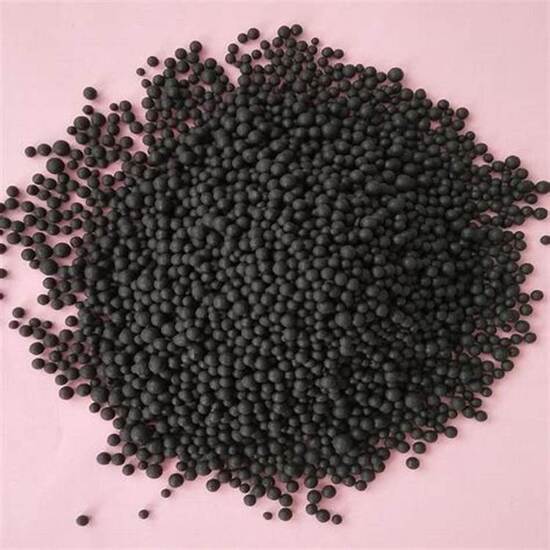
Rice plants require the right nutrients to grow optimally and produce quality harvests. However, nutrient deficiencies are often a problem that hinders the productivity and health of rice plants. This article will review effective ways to overcome nutrient deficiencies in rice, including identifying nutrient deficiency symptoms, using the right fertilizer, and implementing efficient fertilization techniques. In addition, strategies for balancing nutrients in rice plants will also be discussed to achieve optimal nutritional balance.
In addition to addressing nutrient deficiencies, balancing nutrients is an important step to ensure that rice plants get all the nutrients they need in the right amounts. This article presents various strategies for balancing nutrients, such as crop rotation, water management, and the use of biofertilizers. With a deep understanding and application of the right techniques, farmers can increase the productivity and quality of their rice harvests. PT Matari Agro Indonesia is ready to support farmers with integrated agricultural consulting and training services to achieve this goal.
The Importance of Proper Nutrition for Rice
Nutrition is a key element in rice cultivation, as it affects various aspects of plant growth, from root formation to seed production. Adequate and balanced nutrition will ensure that rice plants grow healthily and productively.
Identifying Nutrient Deficiencies in Rice
Before taking steps to address nutrient deficiencies, it is important to identify the type of nutrient deficiency experienced by rice plants. Here are some signs of nutrient deficiencies in rice:
Nitrogen (N) Deficiency
- Symptoms: Leaves turn yellow, growth is stunted, plants look thin.
- Solution: Application of urea fertilizer or NPK fertilizer with high nitrogen content.
Phosphorus (P) Deficiency
- Symptoms: Inhibited root growth, young leaves are purple, low yields.
- Solution: Use of SP-36 fertilizer or other phosphate fertilizers.
Potassium (K) Deficiency
- Symptoms: Old leaves turn yellow and necrotic, stems are weak, plants are susceptible to disease.
- Solution: Application of KCl fertilizer or other potassium fertilizers.
Micronutrient Deficiencies
- Symptoms: Specific signs depend on the type of micronutrient deficient, such as chlorosis (yellowing of the leaves) for 2.esi deficiency.
- Solution: Use of micro fertilizers containing elements such as iron, zinc, and boron.
Strategies to Overcome Nutritional Deficiencies in Rice
Overcoming nutritional deficiencies in rice requires a planned and timely approach. Here are some steps that can be taken:
Soil Analysis
- Importance: Soil analysis helps determine the nutrient content in the soil and identify nutrient deficiencies.
- Procedure: Take soil samples and send them to the laboratory for analysis.
Proper Use of Fertilizers
- Organic Fertilizers: Compost and manure increase the organic matter content in the soil and improve soil structure.
- Inorganic Fertilizers: Use of inorganic fertilizers such as urea, SP-36, and KCl to provide the macronutrients needed by plants.
Timely Application
- Basic Fertilization: Fertilizer application before planting to provide initial nutrients.
- Fertilization Follow-up: Application of fertilizer during the growth phase of the plant, such as the vegetative phase and the seed formation phase.
Fertilization Technology
-
Soil-Based Fertilization: Spreading fertilizer on the soil surface and working it into the soil.
-
Foil-Based Fertilization: Application of liquid fertilizer directly to the leaves for quick absorption.
Balancing Nutrients in Rice
Nutritional balance is key to optimal growth of rice plants. Here are strategies for balancing nutrients:
Crop Rotation
- Benefits: Crop rotation helps restore soil fertility and reduces dependence on one type of fertilizer.
- Practices: Planting legumes or cover crops that can add nitrogen to the soil.
Water Management
- Importance: Adequate and controlled water helps the absorption of nutrients by plants.
- Practice: Efficient irrigation system and proper watering schedule.
Use of Biofertilizer
- Benefits: Biofertilizer contains microorganisms that help absorb nutrients and improve soil health.
- Practice: Application of biofertilizer together with organic or inorganic fertilizers.
Impact of Nutrient Balance on Rice Production
A good nutrient balance will produce healthy and productive rice plants, with several positive impacts such as:
- Increased Yield: Plants that receive sufficient and balanced nutrients will produce more seeds.
- Better Rice Quality: Nutrient balance also affects the physical and nutritional quality of rice seeds.
- Resistance to Pests and Diseases: Healthy plants are more resistant to pests and diseases.
Addressing nutrient deficiencies and balancing nutrients in rice plants are important steps to achieve optimal and sustainable yields. By using the right strategies, such as soil analysis, timely fertilizer application, and efficient water management, farmers can ensure that their rice plants get the nutrients they need. PT Matari Agro Indonesia is committed to supporting farmers with integrated agricultural consulting and training services to achieve this goal.
Support from PT Matari Agro Indonesia
As part of our support, PT Matari Agro Indonesia provides various services such as soil analysis, fertilizer recommendations, and crop nutrient management training. We are ready to assist farmers in overcoming nutritional challenges and increasing rice crop productivity.
For more information on rice crop nutrient management, visit our website or contact PT Matari Agro Indonesia’s team of agronomists. We are committed to providing the best information and solutions for your farming success.
With a good understanding of how to overcome nutrient deficiencies and balance nutrients in rice plants, farmers can achieve better and more sustainable harvests. PT Matari Agro Indonesia is always ready to provide the best support for successful rice farming in Indonesia.
Matari Agro Indonesia is one of the most affordable and farmer-friendly agricultural consulting companies in Indonesia. We provide top-notch agricultural consulting services across the country with the help of a diverse team of scientists, operational experts, and technology. If you are looking for a better return on your agricultural investment, contact the Matari Agro Indonesia team today!
